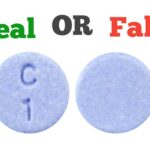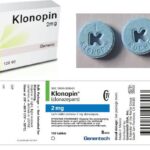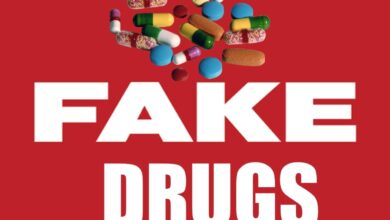How to Spot Fake or Counterfeit Drugs

A fake drug is a medication or pharmaceutical item which is produced and sold with the intent to deceptively represent its origin, authenticity, or effectiveness. A counterfeit drug may contain inappropriate quantities of active ingredients or none, may be improperly processed within the body (e.g., absorption by the body), may contain ingredients that are not on the label (which may or may not be harmful), or maybe supplied with inaccurate or fake packaging and labeling.
Any product can be counterfeit, from dermal fillers to leukemia medicine, you are more likely to encounter a counterfeit medicine if you try to buy medicine online. Unapproved therapeutic goods pose a risk, and counterfeit goods have a much greater risk. Anyone that is willing to break the law to take your money could also be willing to cheat you or risk your health.
A fraudulent medicine may fail to treat the disease, which can be fatal if the medicine is intended to treat a life-threatening condition. Each year, more than 250,000 children die because of fake and substandard pneumonia and malaria medicines alone. Fake medicines can cause unexpected adverse reactions if they have undeclared ingredients or contaminants. Moreover, in the case of diluted antibiotics, understrength medicines contribute to antimicrobial resistance.

How to Identify Fake Drugs
According to Interpol, counterfeit medicines are often packaged to a high standard with fake pills that look identical to the genuine ones. Sometimes a laboratory test is the only way to identify the difference.
It is essential to take care when buying your medicines, especially online.
Look out for the “six Ps”:
- Place – Never buy medicines from unknown websites or in a market place. Buy medicines only from licensed suppliers who display an authenticity certificate. If you are unsure about a supplier’s credentials, check the list of registered dispensaries at your local health regulatory body. This applies to suppliers both online and offline.
- Prescriptions – Only buy medicine that has been prescribed by your doctor or healthcare professional. When buying online, make sure the website requires you to present a prescription. Do not buy from websites that offer prescriptions on the basis of questionnaires or do not have a contactable pharmacist.
- Promises – Be wary of pharmacies that offer “too good to be true” promises. False promises to watch out for are “cures all types” of a major illness, “money-back guarantee”, “no risk” or “limited supply – buy in advance”.
- Price – Check the price against products you usually buy or with reputable providers. If it is substantially cheaper, it is likely to be a fake.
- Privacy – Do not supply any financial information to a website, unless you are sure it has a secure online payment system. The trade in fake medical products has also been linked to credit card fraud and identity theft. Do not reveal any personal information beyond appropriate medical details.
- Product – Compare the medicines against your usual prescription. A medicine is fake if:
- It contains too much, too little or any different ingredients;
- Claims to have different properties or side-effects;
- Has a different shape, size, taste or color;
- Is not correctly labelled or not labelled at all;
- Has an out-of-date or missing expiry date;
- Does not contain information on how to store the medicine;
- The packaging looks poorly constructed or appears to have interfered with;
- There are spelling or grammatical errors on the packaging or instructions.
How to Spot Fake Drugs Laced With Fentanyl
Fentanyl Test
Some drug dealers are using fentanyl to produce fake drugs. This is because it takes very little to produce a high with fentanyl, making it a cheaper option. This is especially risky when people taking drugs don’t realize they might contain fentanyl as a cheap but dangerous additive. They might be taking stronger opioids than their bodies are used to and can be more likely to overdose. Fentanyl is a powerful synthetic opioid that is similar to morphine but is 50 to 100 times more potent.
Fentanyl testing is one of the most reliable ways of telling a fake from a real opioid. A new University of Maryland study found fentanyl tops the list of drugs detected in overdose patients at two Baltimore hospital emergency departments. The finding suggests that hospitals and medical systems throughout the United States consider adding fentanyl, a potent synthetic opioid linked to most fatal overdoses in Maryland, to their routine drug testing panels. That is the conclusion of researchers at the University of Maryland School of Medicine (UMSOM) and the Center for Substance Abuse Research (CESAR) at the University of Maryland, College Park. Currently, fentanyl is not routinely included in these panels nationwide. The procedure described below can help law enforcement agents and public health officials to pick out fentanyl-laced powders and pills.
Steps
- Crush pill or pour powder into a clean bowl or test tube
- Add ¼ inch of clean water to the powder in the tube or bowl and mix properly
- Dip the end of the test strip into the residue for 15 seconds, remove, and lay on a clean flat surface
- Check strip after 5 minutes, (manufacturer’s directions) results may be visible sooner: One line means fentanyl (positive) Two lines means no fentanyl (negative) Note: If the strip does not either have one or two lines, the test is invalid.
Verify Online or SMS
Many countries have unique methods for verifying the genuineness of medications using authentication codes or other online portals to confirm the authenticity of a drug. You can use these methods to confirm whether the drug in your possession is genuine or fake.





